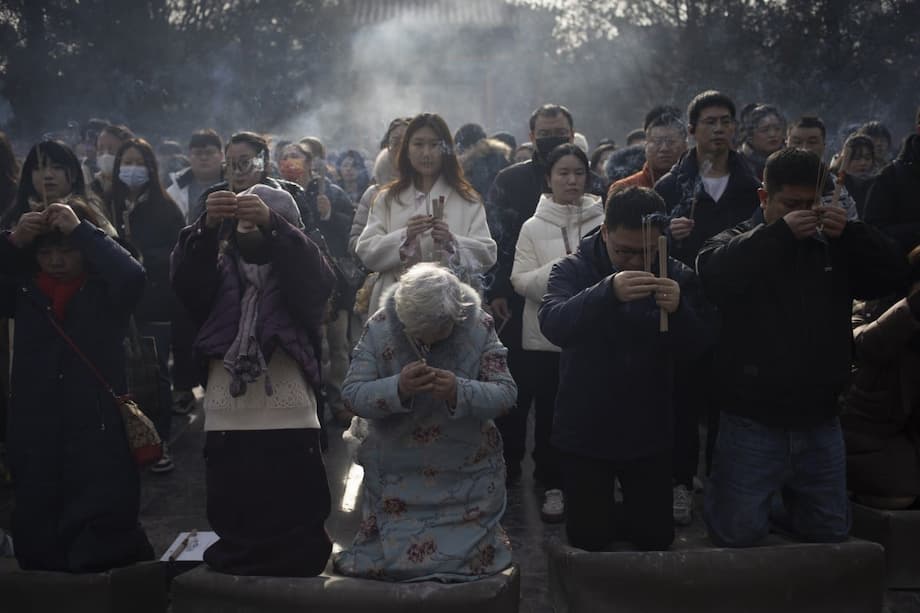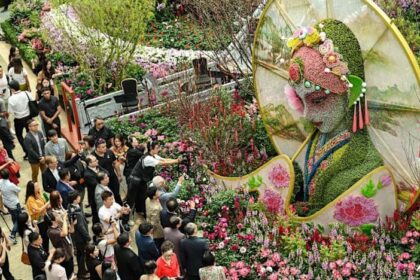The Allure of Guoxue in Modern Urban China
In recent years, a growing number of urban Chinese have turned to guoxue—literally “national studies,” referring to the study of traditional Chinese culture, philosophy, and classical texts—as a means of seeking meaning, identity, and spiritual fulfillment. This revival, however, has also given rise to a troubling phenomenon: the proliferation of guoxue scams that prey on the vulnerable, the disoriented, and those searching for a deeper connection to their heritage.
The story often begins innocently enough. A friend, perhaps burned out by the relentless pace of city life, invites you to join a reading group focused on ancient Chinese wisdom. The promise is one of enlightenment, community, and a return to roots. Yet, beneath the surface, these groups can morph into tightly controlled, commercialized operations that discourage critical thinking and demand unquestioning loyalty.
What Is Guoxue and Why Is It So Appealing?
Guoxue encompasses the study of classical Chinese literature, philosophy (such as Confucianism, Daoism, and Buddhism), history, and traditional practices. For many, especially in urban centers where rapid modernization has eroded traditional social structures, guoxue offers a sense of stability and continuity. It is seen as a way to reconnect with a lost cultural identity and to find answers to existential questions that modern life often leaves unresolved.
According to research on Chinese yangsheng (the art of nourishing life), practices rooted in ancient wisdom—such as meditation, dietary regulation, and gentle exercise—have long been associated with self-cultivation and resilience. In the 21st century, these practices have been commercialized and popularized, reflecting both a genuine revival of tradition and a response to the stresses of urban living.
For urbanites facing burnout, disorientation, or a crisis of meaning, guoxue can seem like a lifeline. It promises not just knowledge, but transformation—a way to become a better, more harmonious person in tune with the rhythms of nature and society.
The Commercialization of Tradition
Yet, as guoxue has become more popular, it has also become more commercialized. Reading groups, workshops, and retreats often charge hefty fees, and charismatic leaders position themselves as gatekeepers to ancient wisdom. The line between genuine cultural revival and opportunistic exploitation has become increasingly blurred.
One urban resident described her experience joining a guoxue reading group at the invitation of a friend. What began as a study of classical texts quickly devolved into a rigid, hierarchical system where questioning was discouraged and members were required to record themselves reading the founder’s book aloud—without discussion or analysis. The process, she said, felt more like indoctrination than education.
How Do Guoxue Scams Work?
Guoxue scams typically follow a familiar pattern. They begin with an invitation—often from a friend or acquaintance—to join a group or attend a seminar. The initial sessions are welcoming and focus on building a sense of community. Gradually, however, the group introduces more restrictive practices:
- Members are discouraged from asking questions or expressing doubts.
- Participation in rituals or repetitive activities (such as reading texts aloud) is required.
- Financial contributions or purchases of books, courses, or other materials become mandatory.
- Leaving the group is made difficult, sometimes requiring approval from a “superior.”
These tactics are not unique to guoxue scams; they are common features of many cult-like organizations and high-pressure sales schemes. What sets guoxue scams apart is their use of cultural nostalgia and the promise of spiritual or intellectual enlightenment as a hook.
The Emotional Inducement Behind the Scams
According to academic research on financial scams in China, emotional inducement is a key factor. Scammers exploit feelings of loneliness, anxiety, and the desire for self-improvement. In the context of guoxue, the appeal is heightened by the cultural cachet of traditional wisdom and the social status associated with being “cultured.”
As one expert on Chinese society notes, “The guoxue mentality is rooted in the uniqueness of Chinese cultural values. For many, participating in these practices is not just about health or knowledge, but about asserting a distinct identity in a rapidly changing world.”
This emotional resonance makes it difficult for victims to recognize the scam, even when warning signs—such as the suppression of critical thinking or the demand for unquestioning obedience—become apparent.
Historical Parallels: Scams and Urban Anxiety in Chinese History
The phenomenon of scams targeting urban dwellers is not new in Chinese history. During the Song dynasty (960–1279), as cities grew and social mobility increased, scam artists preyed on wealthy men and those outside the traditional literati class. According to research by Professor Ronald Egan, these scams often involved the promise of secret knowledge, spiritual power, or access to elite circles—echoing the tactics used by modern guoxue scammers.
Urban environments, both then and now, create conditions ripe for exploitation: anonymity, social fragmentation, and a constant search for meaning and belonging. The commercialization of tradition, whether in the form of fake relics, fraudulent teachers, or dubious self-help schemes, has a long pedigree in Chinese society.
The Role of Ritual and Authority
Another factor is the enduring importance of ritual and authority in Chinese culture. As explored in studies of Chinese political legitimacy, both imperial and modern regimes have relied on symbolic, ritualistic displays to assert their authority and foster social cohesion. Guoxue scams often mimic these patterns, using ritualized activities and hierarchical structures to create an aura of legitimacy and control.
“The CCP’s approach to legitimacy and governance is marked by cycles of centering, ordering, ritual, and resonance, drawing on both ancient and modern sources,” writes one scholar. “China’s unique combination of historical nostalgia, economic strength, and technological capacity may enable it to realize an imperial-style vision of global influence in the 21st century.”
In this context, guoxue scams can be seen as a microcosm of broader trends in Chinese society: the search for order, meaning, and legitimacy in a rapidly changing world.
Why Are Urban Chinese Especially Vulnerable?
Several factors make urban Chinese particularly susceptible to guoxue scams:
- Social Dislocation: Rapid urbanization has disrupted traditional family and community structures, leaving many feeling isolated and rootless.
- Workplace Burnout: The pressures of modern urban life—long hours, intense competition, and job insecurity—drive people to seek relief and meaning elsewhere.
- Cultural Nostalgia: As China modernizes, there is a growing sense of loss regarding traditional values and practices. Guoxue offers a way to reclaim this heritage.
- Desire for Self-Improvement: The culture of self-help and personal development is strong in urban China, making people receptive to promises of transformation and enlightenment.
These vulnerabilities are not unique to China, but the specific form they take—rooted in the country’s history, culture, and current social dynamics—gives guoxue scams their particular potency.
The Impact on Victims
The consequences for those caught up in guoxue scams can be significant. Financial losses are common, but the psychological impact—feelings of betrayal, shame, and disillusionment—can be even more damaging. For some, the experience deepens their sense of alienation and mistrust, making it harder to seek help or re-engage with genuine cultural or spiritual communities.
Responses and Recommendations: How to Protect Yourself
As awareness of guoxue scams grows, both individuals and authorities are taking steps to address the problem. Here are some recommendations for those interested in exploring traditional Chinese culture without falling victim to exploitation:
- Do Your Research: Before joining any group or paying for courses, investigate the organization’s background, leadership, and reputation. Look for independent reviews and testimonials.
- Trust Your Instincts: If something feels off—such as a lack of transparency, pressure to conform, or discouragement of questions—take it seriously.
- Value Critical Thinking: Genuine study of classical texts encourages discussion, debate, and analysis. Be wary of any group that suppresses these activities.
- Seek Out Reputable Institutions: Many universities, museums, and cultural organizations offer legitimate guoxue programs. These are more likely to provide a balanced, scholarly approach.
- Connect with Community: Building relationships with others who share your interests can provide support and help you avoid isolation—a key risk factor for falling into scams.
Authorities in China have begun to crack down on fraudulent organizations, but enforcement remains challenging, especially when scams operate in the gray area between commerce and culture. Ultimately, the best defense is education and vigilance.
In Summary
- Guoxue, or the study of traditional Chinese culture, has seen a resurgence among urban Chinese seeking meaning and identity.
- This revival has been accompanied by a rise in scams that exploit emotional vulnerability, cultural nostalgia, and the desire for self-improvement.
- Guoxue scams typically involve hierarchical structures, suppression of critical thinking, and financial exploitation.
- Historical precedents for such scams exist, reflecting longstanding anxieties and social dynamics in Chinese urban life.
- To avoid falling victim, individuals should research organizations, trust their instincts, value critical thinking, and seek reputable sources for cultural study.












